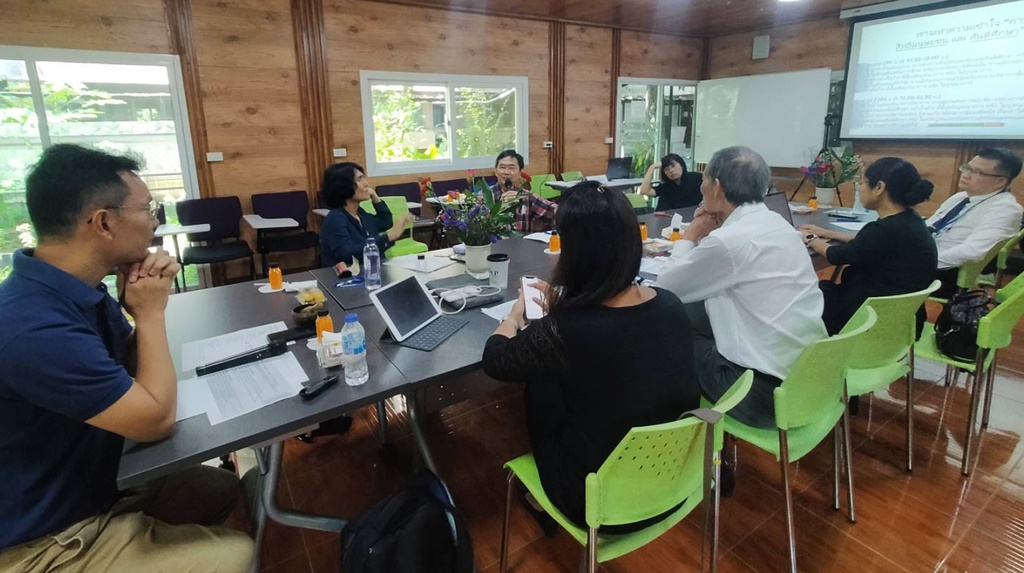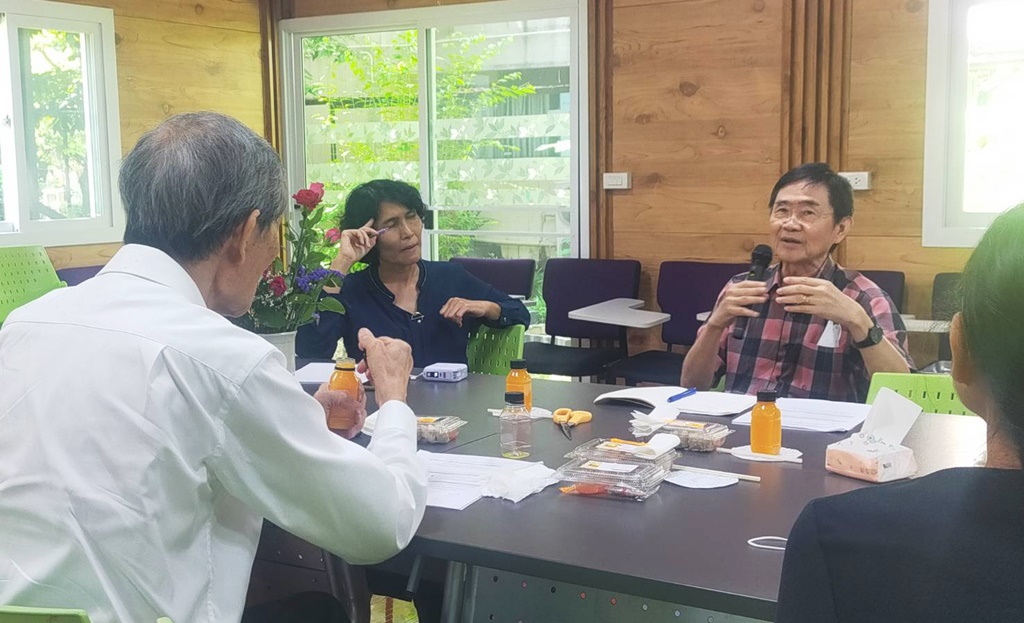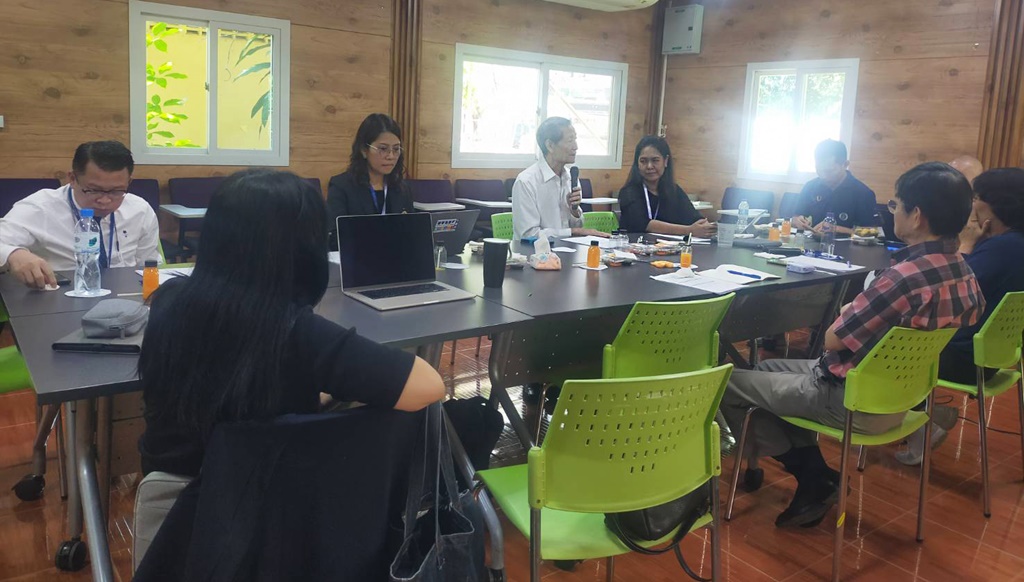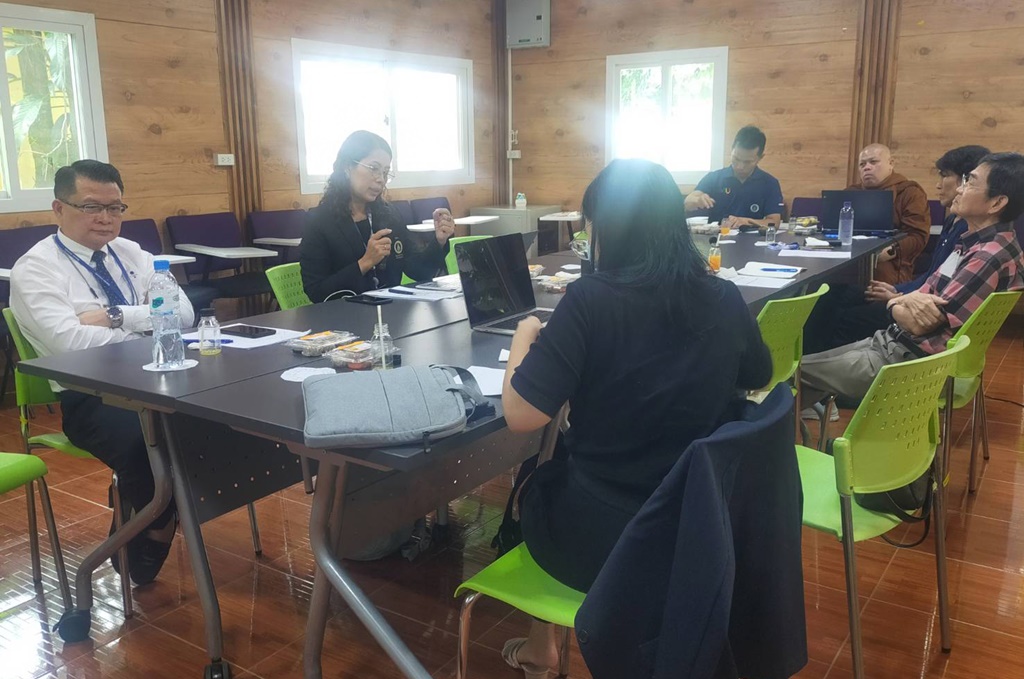
The Institute of Human Rights and Peace Studies organized a roundtable discussion on the “Integration of Human Rights and Peace” on June 28, 2024, at Room 118 of the Institute of Human Rights and Peace Studies, and via Zoom. The participants were experienced academics who have worked in both human rights and peace, including Prof. Dr. Thanet Aphornsuvan from the Faculty of Liberal Arts, Thammasat University, Assoc. Prof. Gothom Arya from the Institute of Human Rights and Peace Studies, Assoc. Prof. Dr. Wutthinant Kantatian from the Faculty of Social Sciences and Humanities, Mahidol University, Monsignor Pramot Vatakovitho from Mahachulalongkornrajavidyalaya University, Dr. Pirao Makjaroen from the College of Religious Studies, Mahidol University, Dr. Chanchai Chaisukkosol, and Asst. Prof. Chokchai Vongtani from Prince of Songkla University. They were joined by lecturers from the Institute of Human Rights and Peace Studies, led by Dr. Vachararutai Boontinand, Director of the Institute. The meeting was moderated by Dr. Pholdham Chancome.
The roundtable aimed to review the integration of human rights and peace studies in academics, academic services, and research missions. For academic direction, participants shared that human rights and peace could be integrated through the curriculum. Through research and academic service, these topics could be integrated by studying the dynamics between state agents and the people, or local authorities and villagers, while examining the law and creating a public neutral space.
Furthermore, participants discussed the political context in Thailand, highlighting the struggle for freedom and political rights, such as the violence on October 14 and October 6, and other events. The conflicting parties are often the security forces and the people. Thailand tends to value the strength of central power and national security over human security. The state’s coercive power leads to the loss of human resources. Therefore, the development of human rights and peace relies on enhancing knowledge and awareness to create a just and sustainable society.
In the international context, participants mentioned the concept of transitional justice. To integrate human rights with peace, transitional justice—which encompasses truth-finding, prosecution, policy reform, reconciliation, and the rehabilitation of painful memories through trauma-informed education—was discussed.
The integration of human rights and peace seeks collaboration through individuals, organizations, networks, policies, and strategies under both intradisciplinary and interdisciplinary concepts. Through constructive engagement, the Institute aims to learn from strengths, weaknesses, and coincidences to create an integrated synergy that addresses social issues, rooted in the foundation of development, and to promote a happy, peaceful, secure, and sustainable society.




